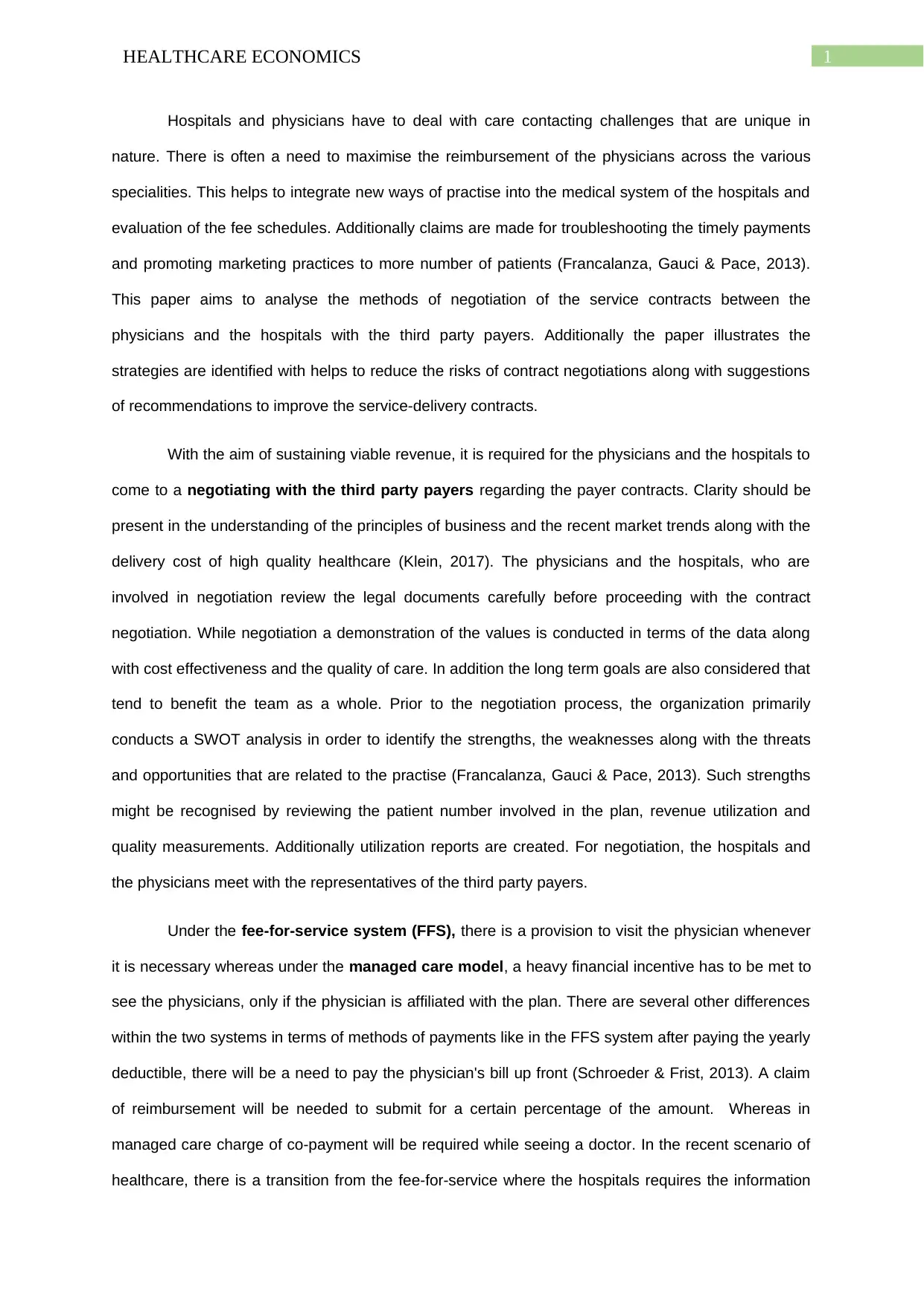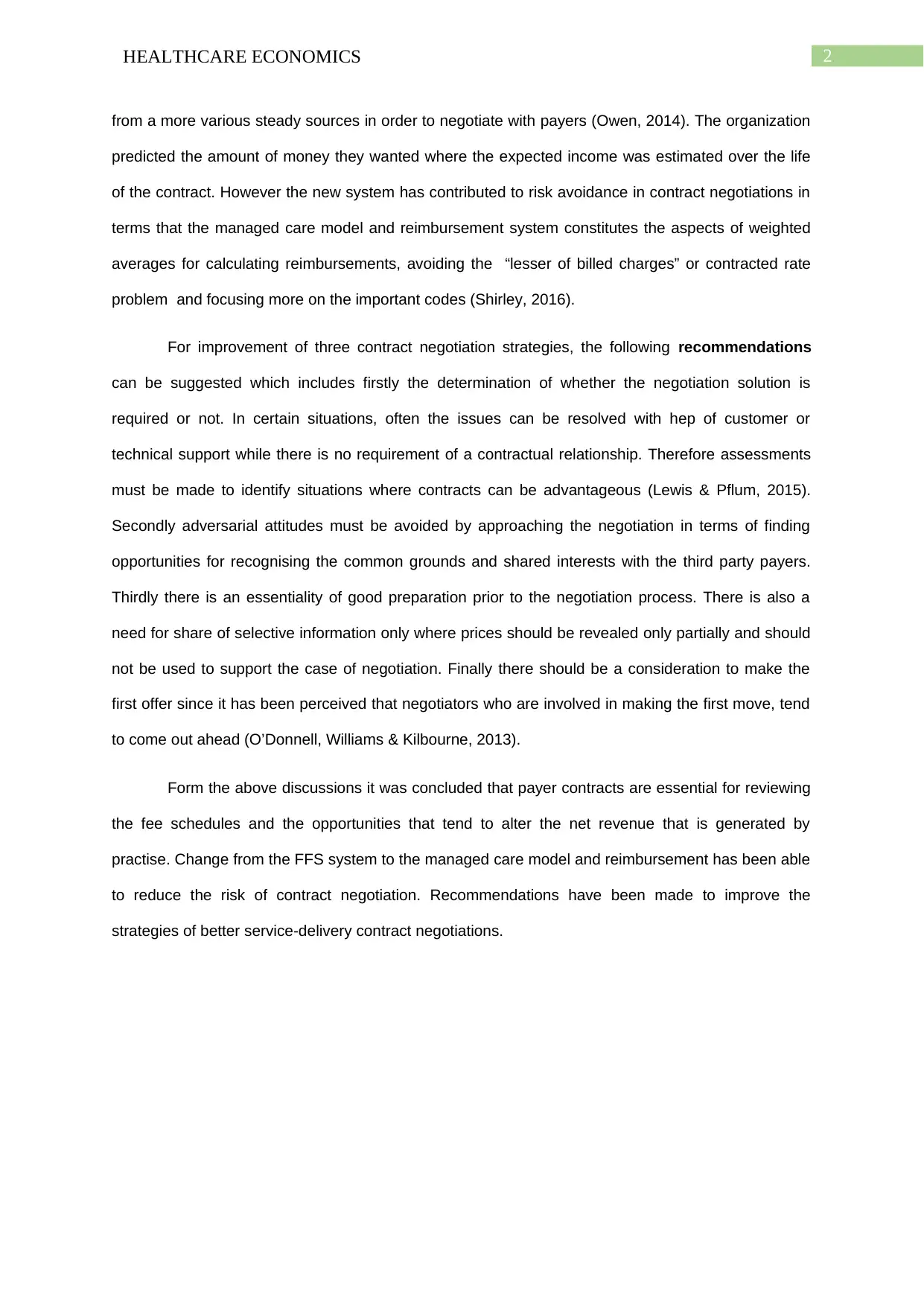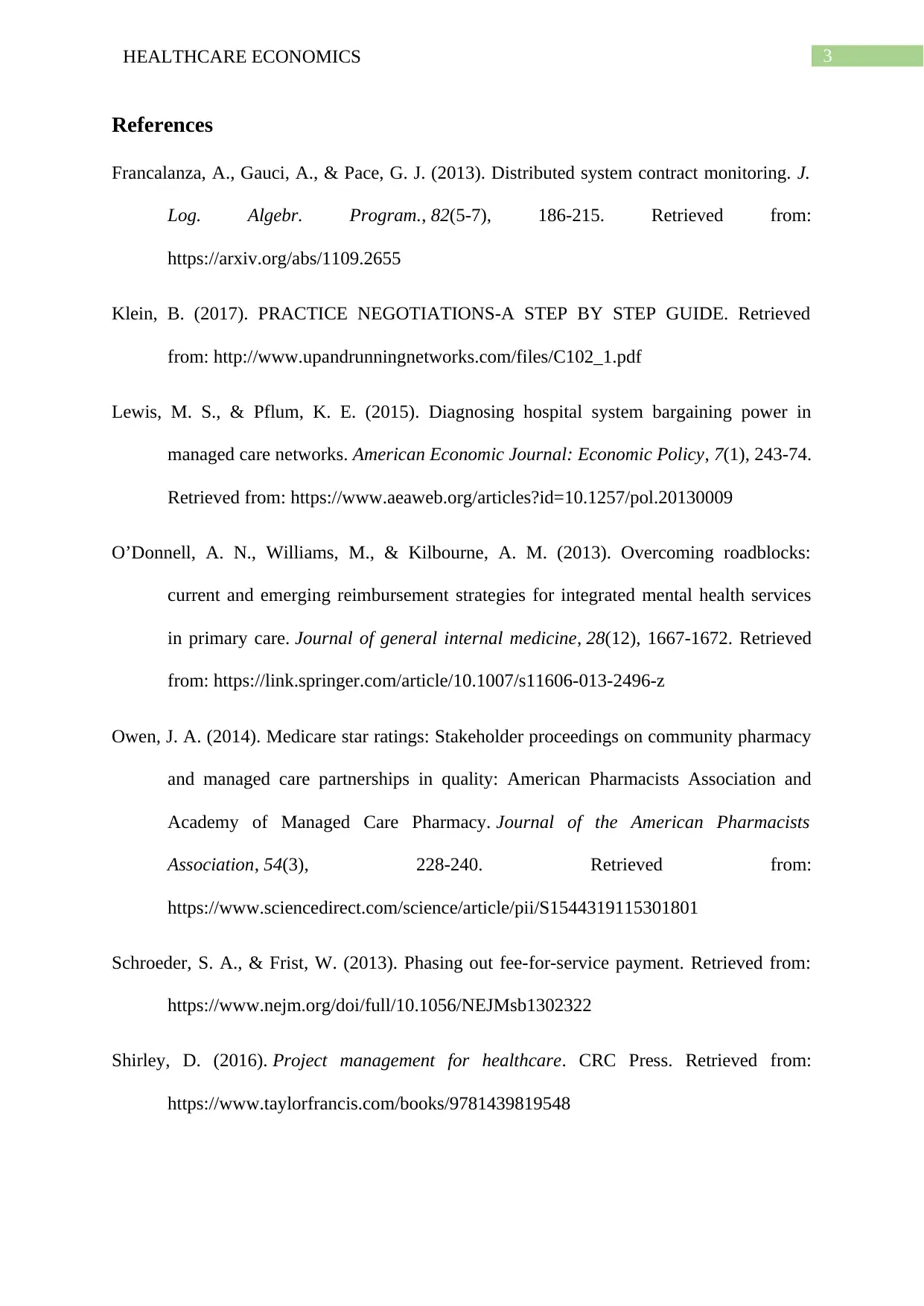Healthcare Economics: Strategies for Service-Delivery Contracts
VerifiedAdded on 2023/06/10
|4
|1162
|274
Report
AI Summary
This report delves into the unique challenges hospitals and physicians face in healthcare economics, particularly concerning service contract negotiations with third-party payers. It examines methods to maximize physician reimbursement, integrate new practices, and evaluate fee schedules. The paper analyzes negotiation strategies, including SWOT analysis, and contrasts the fee-for-service (FFS) and managed care models, highlighting the transition from FFS to a system requiring diverse information sources for payer negotiations. It identifies risk avoidance measures in contract negotiations and offers recommendations to improve contract negotiation strategies, such as determining the necessity of negotiation, avoiding adversarial attitudes, and thorough preparation. The report concludes that payer contracts are essential for reviewing fee schedules and altering net revenue, and that the shift to managed care reduces negotiation risks, emphasizing the importance of strategic improvements for better service-delivery contracts. Desklib offers a wide range of study tools and resources to support students.
1 out of 4





![[object Object]](/_next/static/media/star-bottom.7253800d.svg)